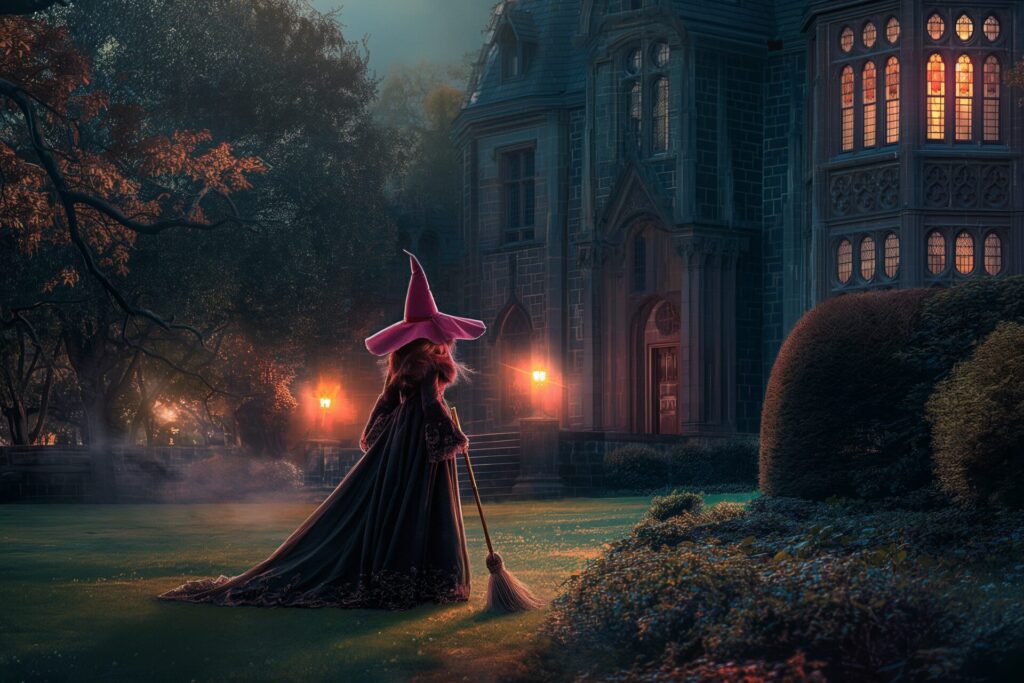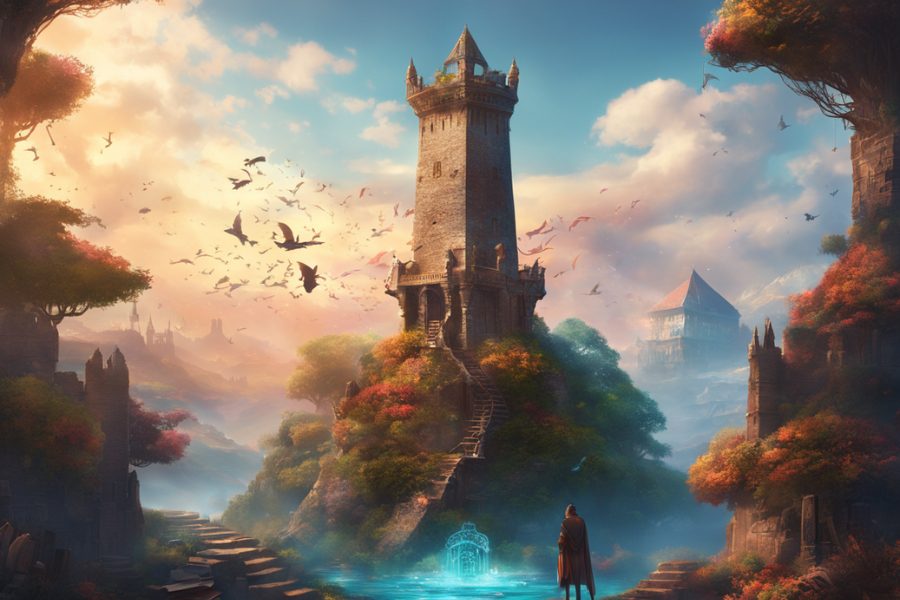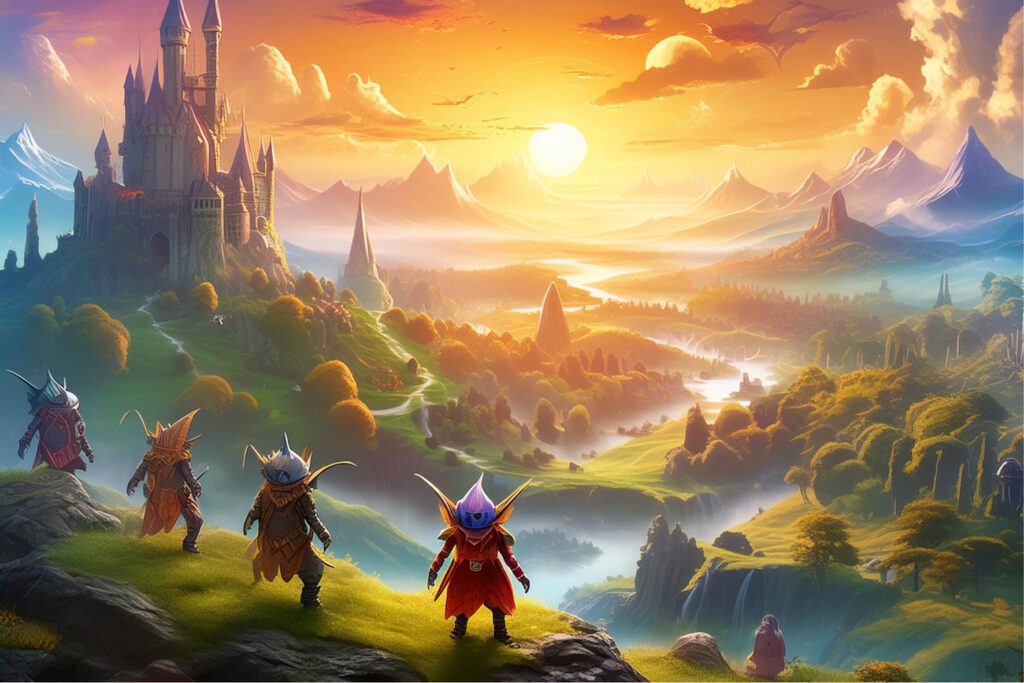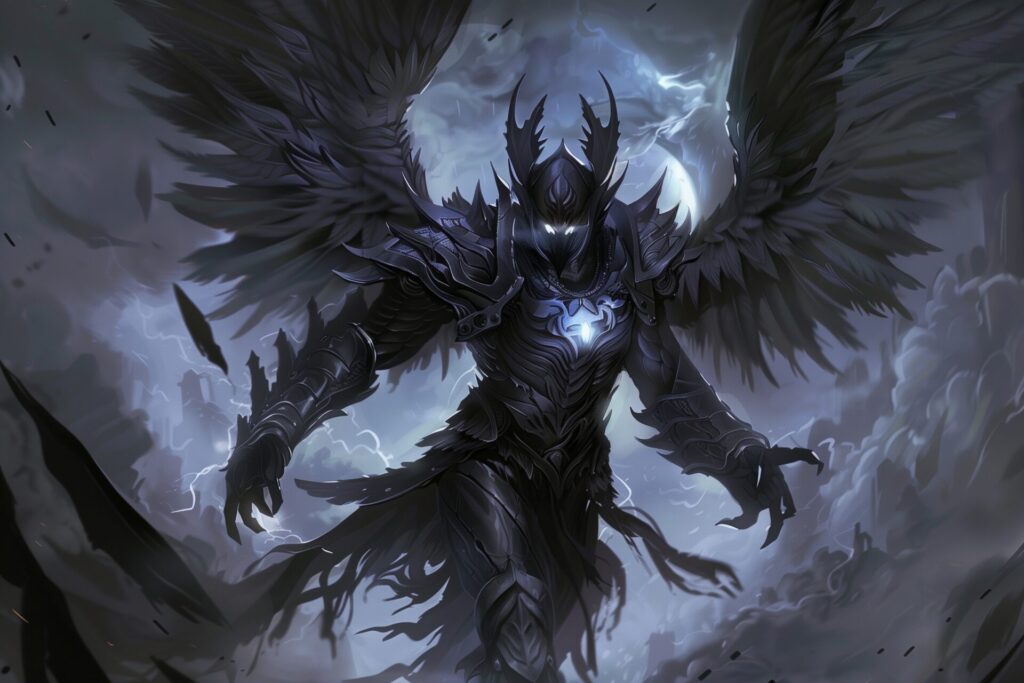5 Tips on Writing: With Narrative Designer Heidi McDonald
I started writing when I was 8 but didn’t pursue it professionally until I was 30. That was 24 years ago, and in that time, I’ve written ad copy, feature stories, press releases and speeches, municipal legislation, research materials, and blog posts, and for the past 13 years, my focus has been video games.
After being a city single and raising a family in suburbia, I’ve reached my “Witch of the Wilds” phase, where I’m living in the spooky part of rural North Carolina and doing the best work of my life. I just want to continue to draw my living from that because, at this point, it’s what I’m good at.
We’ll see what happens. I’m hopeful that enough people will see value in my work that I can be hired, be read, and have my material played for the rest of my life. AI can try to come for me, but I’ll always write because I gotta.
Hooking Your Audience

Drop them right into the action from the beginning. People are more likely to be interested in what’s going on if the work starts with an interesting situation that characters find themselves in. Character development can wait a minute when there’s downtime in the action.
I recently had an assignment to write a story about a nurse, so I began the story with a tense surgery where the nurse had to make a decision. When that decision saves the patient’s life, and the surgery gets wrapped up, they all file back out of the operating room and she sits on a bench to take a beating.
The doctor congratulates her for her life saving decision, and they have a conversation that sets up who she is and her aspirations. I don’t think that would be as interesting for listeners if it started with a description of who she is and her aspirations, and then going into that surgery. You have to create an interesting moment first.
Mastering Plot Development
Remember who your characters are. What are their personalities, their goals, their motivations? Stay true to that. I find that the most interesting twists can come from putting characters into a situation where who they are is somehow at odds with that situation, to see how they react, cope, grow, and change. Conflicts erupt when characters at cross-purposes are put into a situation where they must work together.
I have one work in progress where a woman whose job it is to be a stager for flipped houses (she puts furnishings into empty houses to give potential buyers a vision of the finished house). I thought about…what kind of situation would drive her a little batty, or a circumstance where she would fundamentally struggle because of her tendency to “add decorations?”
I sent her to a wilderness survival situation, where you can only bring what you can carry, and everything you carry has to be useful. She will learn some lessons about her priorities, I think.
Effective World-Building Strategies

Think about a day in your main character’s life, from the moment that character wakes up in the morning to the moment they go to sleep at night. What things must the character do? What do they see, hear, smell, taste, and touch throughout the day? If things are happening around them…why are they happening?
Whether you reveal all of this in your work is one thing, but you, as the writer or developer, should know all of these answers in your own mind. There are two levels to worldbuilding: the information you have, and the information you choose to reveal. You should always know more about the world than your user.
I worked on one product where one of the women was an athlete. We never revealed what her sport was, but I decided it should be a ridiculous made-up sport (because this character was kind of a bubblehead); I invented karateball, a cross between karate, kickball, and ballet. It was ridiculous. Knowing in my own mind that this character was passionate about something silly allowed me to make smarter choices about her dialogue and interactions.
Techniques for Character Development
Quirks. Everybody has them. It’s fine to have archetypal characters, but give them idiosyncrasies that make them more unique and human. Have the manly-man warrior, sure…but give him a fear of something common and benign, like kittens. You absolutely want to answer the big questions like what this character lives for and what this character would die for. Those are important foundational things.
But I think the icing on the cake is to think about the quirks and the flaws. The princess is allergic to mangoes, which are the main export of her betrothed’s country. The movie star has an entire room in the mansion full of things he pickpocketed from people while out at clubs. Stuff like that.
Crafting Meaningful Decisions

Ah! I could write an entire dissertation on this one. Currently, there are two schools of thought in games about player choice. One is that the purpose of choice is immersion; the choice should have stakes and should result in some kind of change to the world, the situation, or a character relationship.
An example is choosing whether to align with the Light Side or the Dark Side in a Star Wars game. The other is that the purpose of choice is engagement; the act of the players expressing themselves through their character is the most important thing. An example of this is choosing which bathing suit your character will wear. The first changes things in the story, the second doesn’t, but both can represent a type of player agency.
I may very well die on the hill of believing that both types should be present, but the first type is more crucial to the experience. So I guess my advice here is to understand the nature of the choice and establish good stakes. For me as a player, the best choices are those where every option is complicated. Baldur’s Gate 3 was fantastic at this!
Heidi 's Work & Experience
I’ve had the good fortune to work with a number of existing franchises such as Star Trek, Love Island, (a very famous science fiction IP that I can’t reveal because of NDA), and a few Netflix properties. I’ve also worked on a number of larger independent projects that I’m proud of — several titles with Schell Games, including Orion Trail, which was fantastic because it was both a Star Trek parody and just utter silliness.
Two of the adaptations I did for Crazy Maple’s Chapters app made it to the Top 5 Plays of All Time List (The Highland Duke and Snow Falling), and an audio series on Pocket FM that I worked to adapt, called A Mother’s Battle, just passed 1.5 million listens.
Writing & Narrative Design Skills

Humor and heart. I love creating dialogue the most (especially romantic banter). It’s easy for me because I picture the conversations as though watching them unfold as a movie scene. Reading the material out loud helps, because it either sounds like “stuff those people would say” or it doesn’t, and if it doesn’t, you change what you need to.
I also think I’m good at bringing silliness because I love writing humor and making people laugh. Writers are going to be best at the things they love writing the most. People can always tell when you put love into what you’re doing versus when it’s just something you were assigned that you’re not excited about but grinding out.
Exploring Favorites
This changes for me depending on the particular life moment I find myself in at any given time. One that I have found timeless and always enjoyed at every life moment is Raiders of the Lost Ark, because it has elements that scratch so many of my itches at once (action, adventure, good and evil, exotic locations, characters to root for, humor, romance).
I feel similarly about the first Pirates of the Caribbean movie. Both of those were flawless, in my opinion.
A Wish for Interactive Audio Stories

BioWare’s Dragon Age has been my favorite game franchise for eons. Most folks who know me are cracking up right now because THEY KNOW, haha. One character who has constantly fascinated me is Flemeth, the Witch of the Wilds. She’s an old woman, but she is beautiful, powerful, and has a staggering amount of agency.
She’s interesting in the same way that Baba Yaga from Eastern European lore is interesting — she presents different faces and identities to different people at different times, for different reasons — so nobody really understands who she is and she has this veil of mystery about her. I would love to see more compelling stories about older women.
Not just because I am one, but also because society kind of dismisses us and doesn’t always see us as attractive, important, or relevant, and nobody is aiming anything at GenX right now (which is a mistake). Give me kickass Flemeth, all day (and cast Helen Mirren, please!). I’d love to hear, and work on, stories like that.
Register for our Free Writing Workshop now!
Are you interested in creating your own interactive audio story? You can apply for our free webinar! It will introduce you to our interactive story game engine, TWIST, and teach you how to use it to create interactive audio stories.
Interested in contributing to our blog series?
If you would also like to publish a blog post on our website and share your own story with interested readers, simply fill out the contact form.





